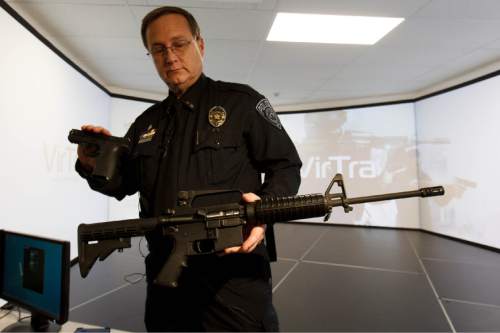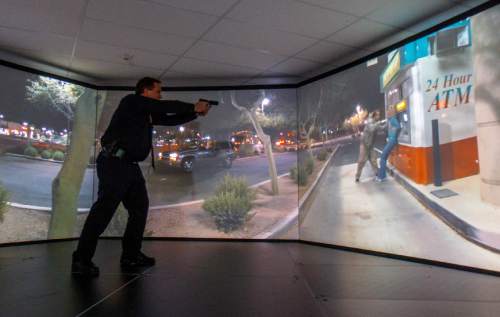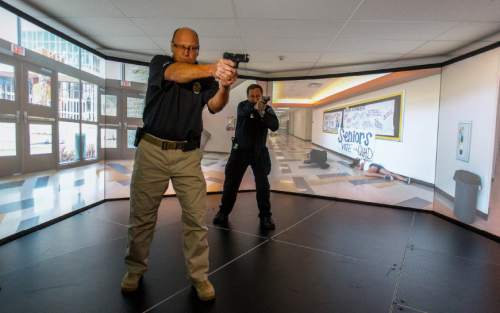This is an archived article that was published on sltrib.com in 2016, and information in the article may be outdated. It is provided only for personal research purposes and may not be reprinted.
A bill that would give Utah law enforcement officers virtual training in crisis situations won a unanimous endorsement Monday from the House Law Enforcement and Criminal Justice Committee.
The training is geared toward helping officers recognize what they can do to avoid violent confrontations before a situation escalates. Simulations include scenarios such as hostage situations or movie-theater shootings and teaches "when not to shoot."
"We are taking a look at the pre-escalation," said Ken Wallentine, Chief of Law Enforcement for the Utah Attorney General. "That is, what can we do the minute the officer arrives to slow things down, to calm things down."
The bill received positive feedback from members of the committee, some of whom have visited the VirTra training facility themselves.
"I can see what kind of a valuable tool it is for law enforcement because it's next to the real thing, that you don't want to replicate," said Rep. Jeremy Peterson, R-Ogden.
The training is expensive, but Rep. Paul Ray, R-Clinton, said the $375,000 request is the "best money we're going to spend all year when it comes to public safety."
Majority Whip Rep. Francis Gibson, R-Mapleton, the bill's sponsor, said this training should be provided free to officers throughout the state as a chance to show that Utah is "proactive in trying to help train our officers in [these types of] situations."
Wallentine said leaders of police agencies have called their VirTra training the "best training" their officers had ever had.
One sheriff told him that the officers from his department said they had "benefitted more from the one day there than any of the training they'd had."
"But he recognized that he can't afford it," Wallentine said of the sheriff. "It's not in his budget."
Ray told his fellow legislators that if they voted the bill out, they "really need to help prioritize this when it comes to funding."
Gibson echoed that sentiment.
"There are a lot of requests out there that do not have the potential meaning and lifesaving ability that this does," he said. "I would ask yourself to weigh this versus something else."
Agencies such as the Police Chiefs Association and the National Alliance on Mental Illness sent representatives who spoke in favor of the bill and the collaboration between law enforcement and mental health advocates.







